Key Takeaways
-
Silverfish Don’t Typically Live in Beds: They prefer dark, humid environments like closets and baseboards; beds are only occasional stopovers for food or shelter.
-
Attracted by Moisture and Food: Humidity, crumbs, hair, skin flakes, and clutter in bedrooms can draw silverfish indoors.
-
Health Risks Minimal: Silverfish don’t bite or transmit disease, but they can damage books, clothing, and trigger mild allergies.
-
Prevent with Cleanliness and Ventilation: Regular cleaning, lowering humidity, and sealing gaps can help keep silverfish away.
-
Natural Repellents Effective: Use diatomaceous earth, cedarwood, lavender, or cinnamon to repel silverfish naturally.
-
Professional Help: If infestations persist, pest control experts can offer targeted, long-lasting solutions.
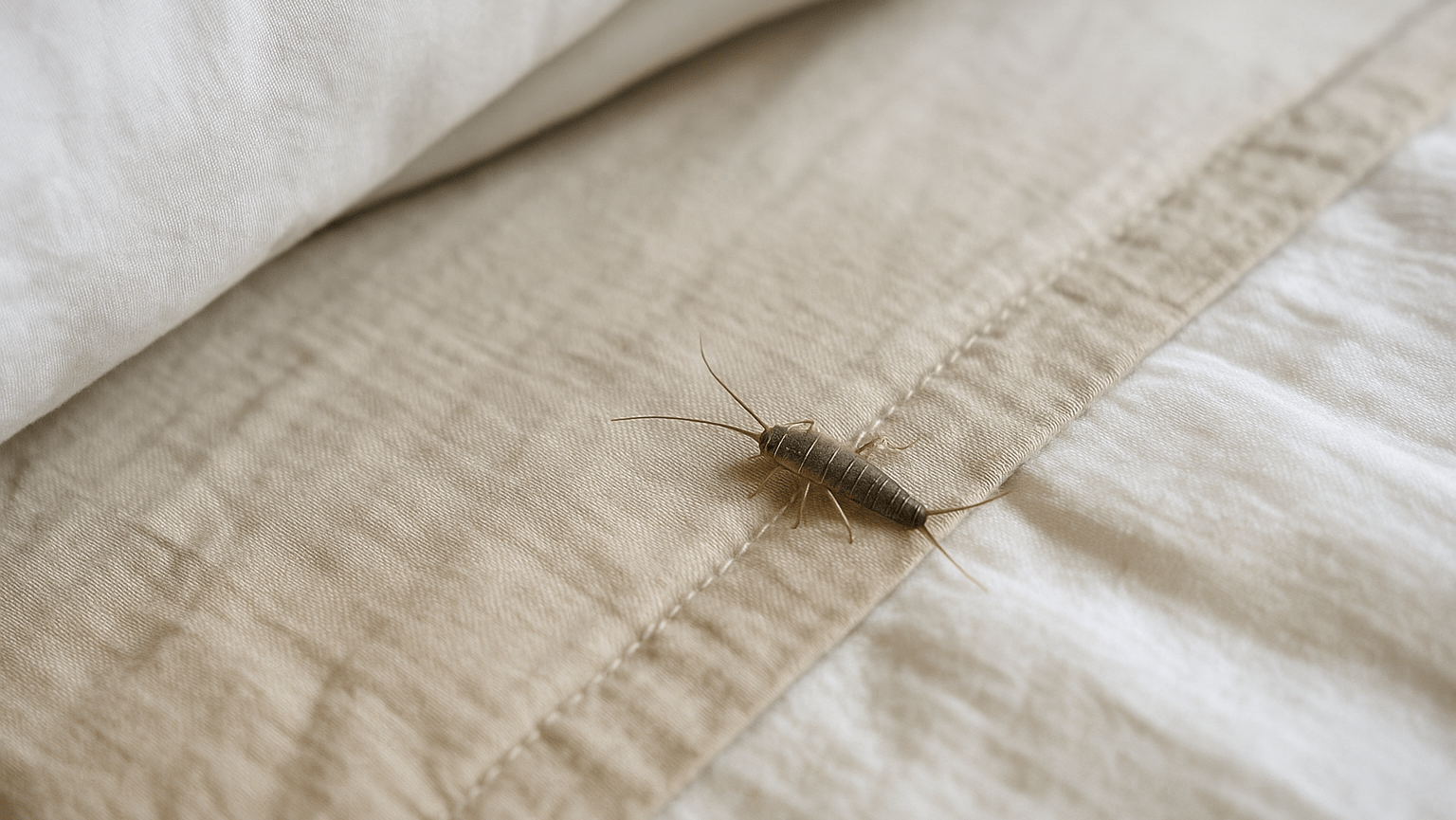 If you’ve spotted tiny, silver-colored bugs in your bed or bedroom, you might wonder, Do silverfish live in beds? Or why are silverfish in my bed? These questions are common for anyone noticing the unexpected presence of these elusive pests.
This article serves as a comprehensive guide explaining whether silverfish truly live in beds, why they might be attracted to bedrooms, and how to prevent and manage infestations. It also addresses common myths and provides actionable tips for a silverfish-free home.
If you’re unsure about silverfish activity in your home, don’t wait for the issue to grow. Schedule your Free Pest Inspection Today, and let our experts help you regain your peace of mind.
If you’ve spotted tiny, silver-colored bugs in your bed or bedroom, you might wonder, Do silverfish live in beds? Or why are silverfish in my bed? These questions are common for anyone noticing the unexpected presence of these elusive pests.
This article serves as a comprehensive guide explaining whether silverfish truly live in beds, why they might be attracted to bedrooms, and how to prevent and manage infestations. It also addresses common myths and provides actionable tips for a silverfish-free home.
If you’re unsure about silverfish activity in your home, don’t wait for the issue to grow. Schedule your Free Pest Inspection Today, and let our experts help you regain your peace of mind.
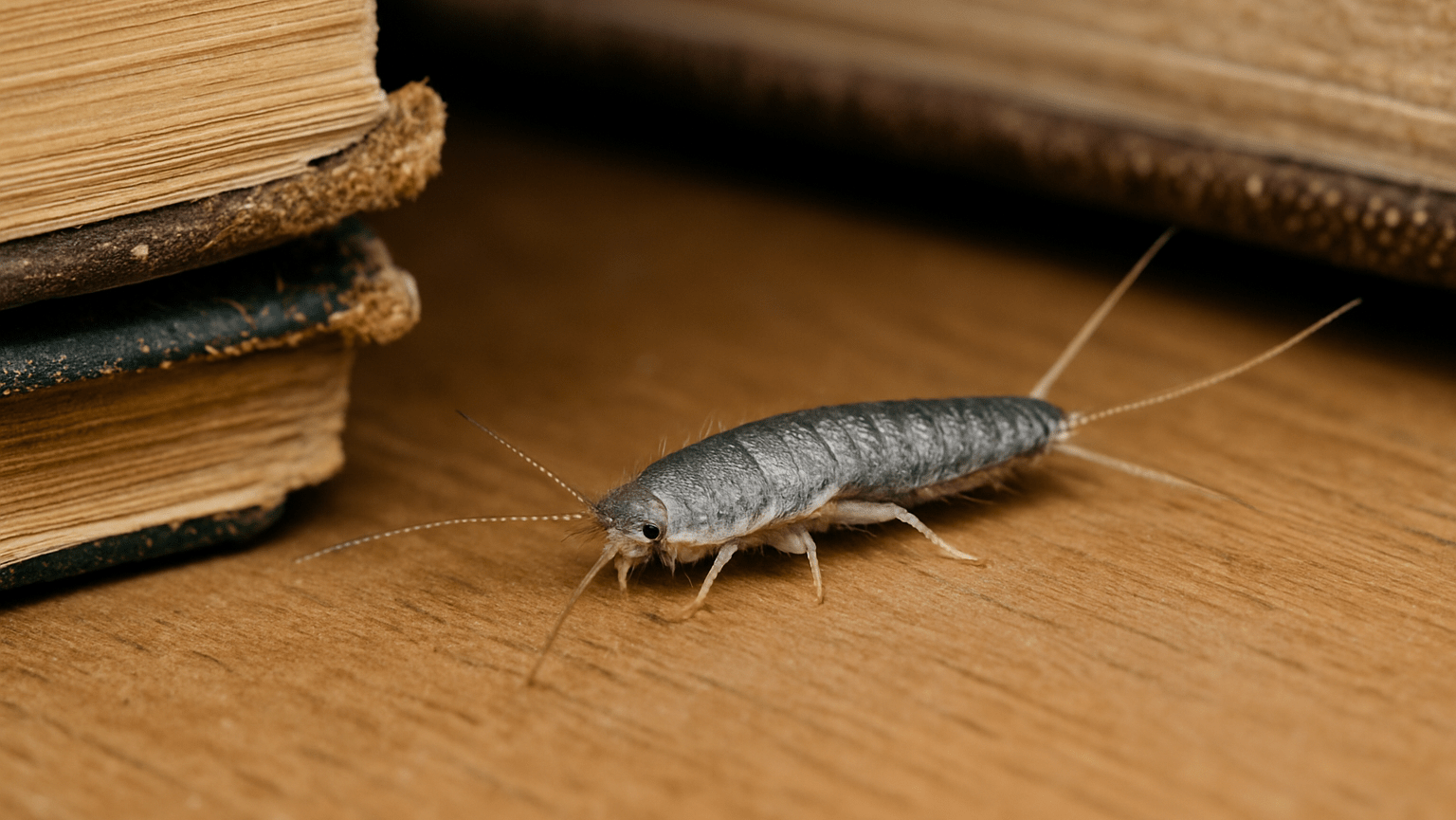

Not getting a solution?
Get your free pest control estimate today!What Are Silverfish?
Silverfish are small, wingless insects known for their metallic silver color and fish-like movements. These nocturnal creatures prefer dark, damp, and humid environments, often hiding in cracks, crevices, or other tight spaces during the day. While silverfish don’t bite or pose a direct threat to humans, their presence can be unsettling, and they can damage personal items like books, clothing, and bedding.Do Silverfish Live in Beds?
The short answer is NO; silverfish do not live in beds. However, they may temporarily hide there if the conditions are favorable. Beds don’t naturally provide the damp and dark conditions silverfish prefer for long-term habitation. They are more likely to inhabit areas like baseboards, closets, or storage boxes near your bed and may only visit your bed in search of food or temporary shelter.
Why Are Silverfish in My Bed?
While silverfish don’t typically live in beds, they might find their way into your bedding for several reasons:Why Silverfish Are Attracted to Beds
-
 Food Sources: Silverfish feed on starches, carbohydrates, and proteins often found in human hair, skin flakes, and crumbs. Beds can accumulate these food sources, making them attractive to silverfish.
Food Sources: Silverfish feed on starches, carbohydrates, and proteins often found in human hair, skin flakes, and crumbs. Beds can accumulate these food sources, making them attractive to silverfish. -
 Warmth and Shelter: Beds provide a cozy and protected environment where silverfish can temporarily hide from predators and light.
Warmth and Shelter: Beds provide a cozy and protected environment where silverfish can temporarily hide from predators and light. -
 Moisture and Humidity: If your bedroom has high humidity levels or damp bedding, silverfish are more likely to invade. They thrive in moisture-rich environments.
Moisture and Humidity: If your bedroom has high humidity levels or damp bedding, silverfish are more likely to invade. They thrive in moisture-rich environments. -
 High Humidity: Silverfish love humid areas, making poorly ventilated bedrooms or those with water leaks a perfect habitat.
High Humidity: Silverfish love humid areas, making poorly ventilated bedrooms or those with water leaks a perfect habitat. -
 Clutter: Piles of books, papers, or clothes can attract silverfish as these provide both food and shelter.
Clutter: Piles of books, papers, or clothes can attract silverfish as these provide both food and shelter. -
 Poor Cleanliness: Accumulated dust, crumbs, and other debris can act as an easy food source for silverfish.
Poor Cleanliness: Accumulated dust, crumbs, and other debris can act as an easy food source for silverfish. -
 Access Points: Silverfish can enter your home through cracks in walls, windows, or under doors, and they might eventually find their way to your bedroom.
Access Points: Silverfish can enter your home through cracks in walls, windows, or under doors, and they might eventually find their way to your bedroom.
Signs of Silverfish in Your Bed
- Tiny, irregular holes or stains on sheets, pillowcases, or mattresses
- Small, pepper-like droppings found on or near bedding
- Cast skins and fine scales left behind as they molt
- Sightings of fast, silver-colored insects scurrying away at night
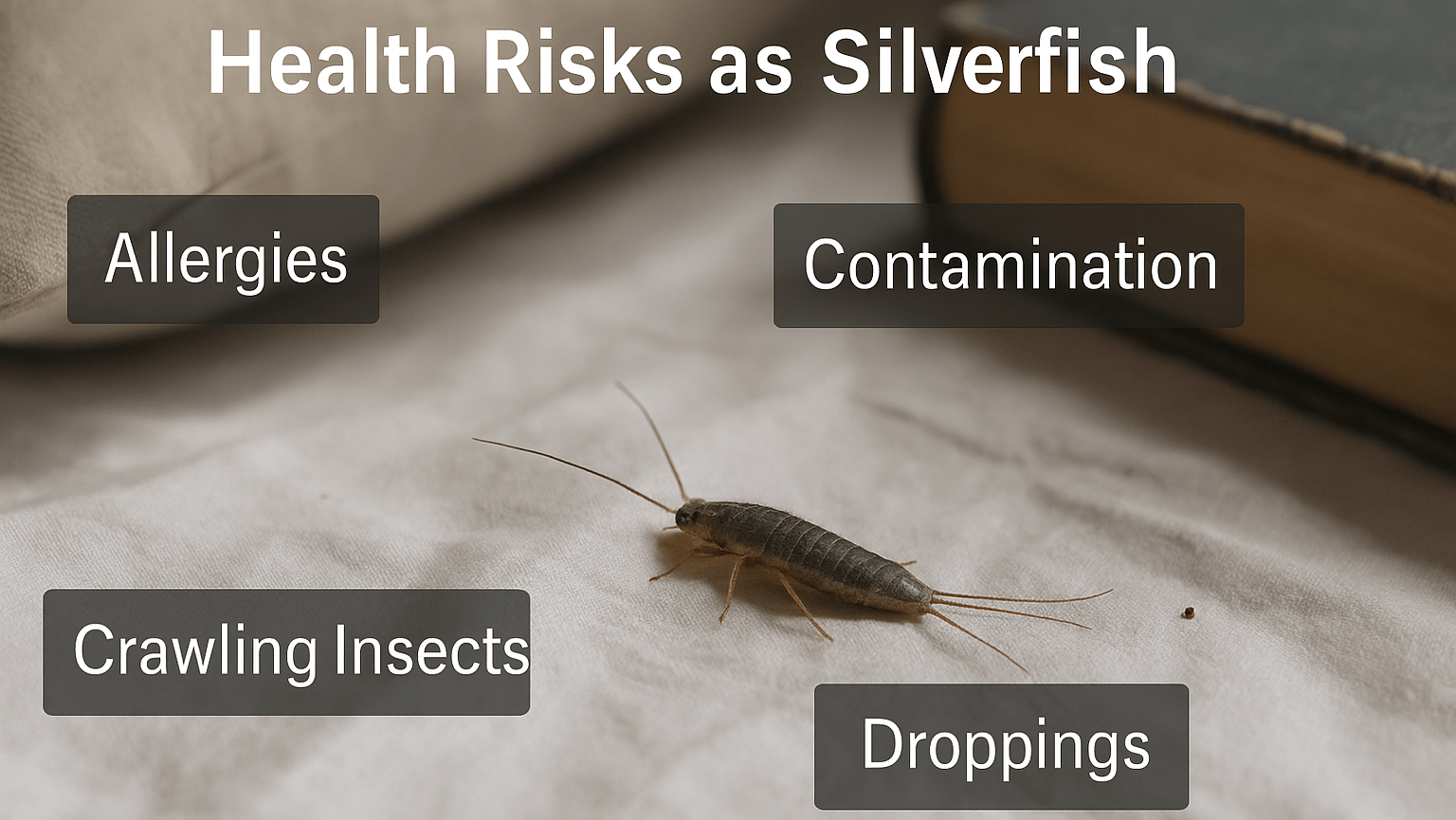
Health Risks Associated with Silverfish
Although silverfish may appear creepy, they are not known to bite, sting, or spread diseases to humans. However, they can:- Damage personal belongings by feeding on clothing, books, wallpaper, and bedding.
- Trigger allergic reactions or asthma symptoms in sensitive individuals due to shed skins and droppings.
- Cause stress or anxiety due to their unsettling appearance and rapid movements.
Common Hiding Spots for Silverfish in Bedrooms
Identifying where silverfish hide is essential for effective control. Typical bedroom hiding spots include:- Inside mattresses or between bedding layers.
- Underneath beds, particularly if there’s clutter or storage beneath.
- Inside closets, drawers, and wardrobes.
- Behind wallpaper or baseboards, especially if damp or peeling.
- Near windows, doorframes, and plumbing fixtures that create moisture.
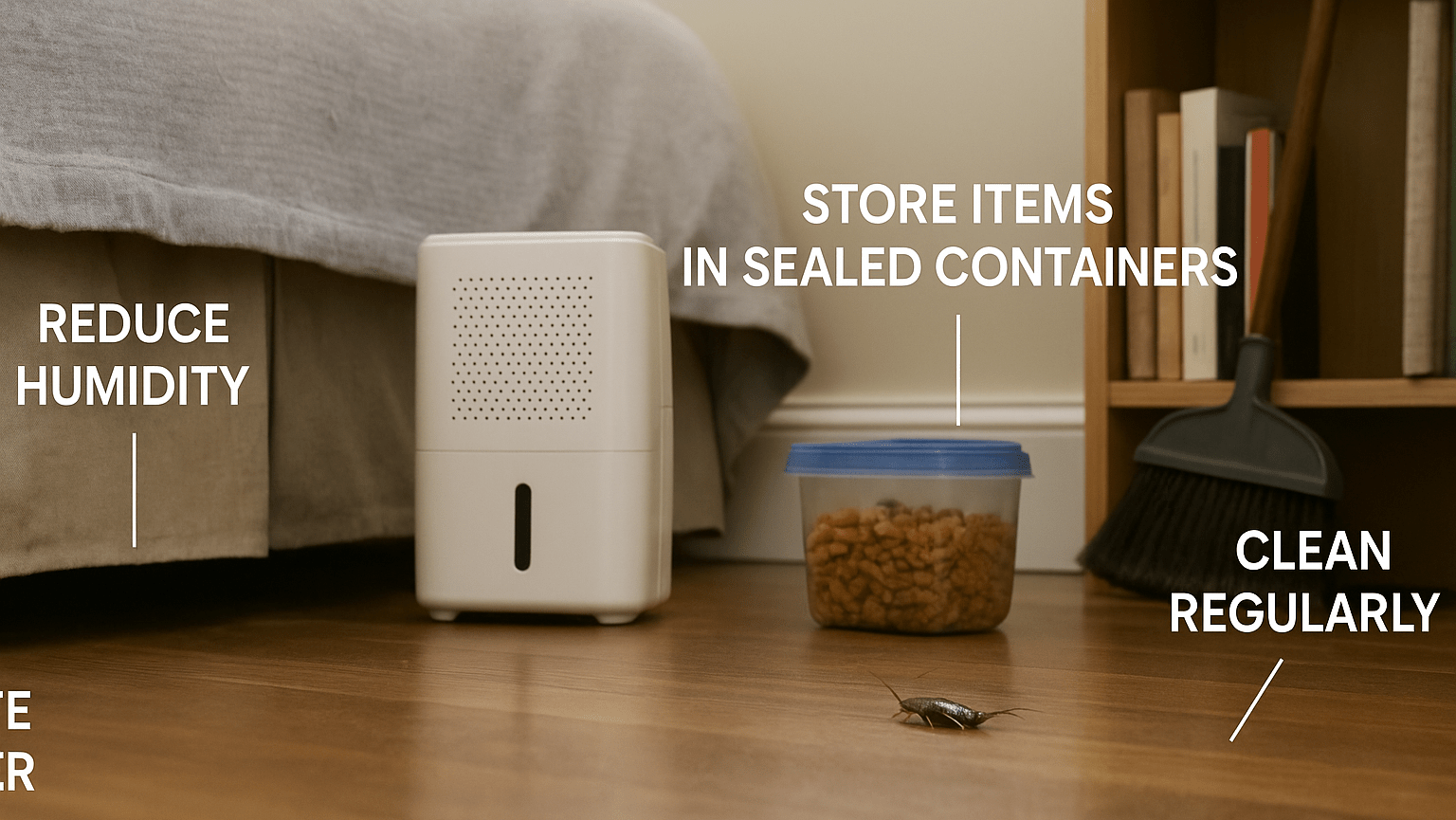
How to Prevent Silverfish in Your Bed
Preventing silverfish from invading your bed requires reducing the conditions that attract them. Here are some practical tips to keep these pests out of your sleeping area:Tips to Prevent Silverfish in Your Bedroom
-
 Use a Dehumidifier: Use a dehumidifier to keep your bedroom dry, especially in humid climates or basement rooms.
Use a Dehumidifier: Use a dehumidifier to keep your bedroom dry, especially in humid climates or basement rooms. -
 Ensure Proper Ventilation: Ensure proper ventilation to reduce moisture levels effectively.
Ensure Proper Ventilation: Ensure proper ventilation to reduce moisture levels effectively. -
 Keep Your Bedroom Clean: Keep your bedroom clean and free of clutter, particularly paper and books that silverfish may use as food sources.
Keep Your Bedroom Clean: Keep your bedroom clean and free of clutter, particularly paper and books that silverfish may use as food sources. -
 Wash Bed Linens Regularly: Regularly wash and dry your bed linens to eliminate food particles that could attract silverfish.
Wash Bed Linens Regularly: Regularly wash and dry your bed linens to eliminate food particles that could attract silverfish. -
 Store Items in Sealed Containers: Store items like clothing, documents, and other potential food sources in sealed containers.
Store Items in Sealed Containers: Store items like clothing, documents, and other potential food sources in sealed containers.
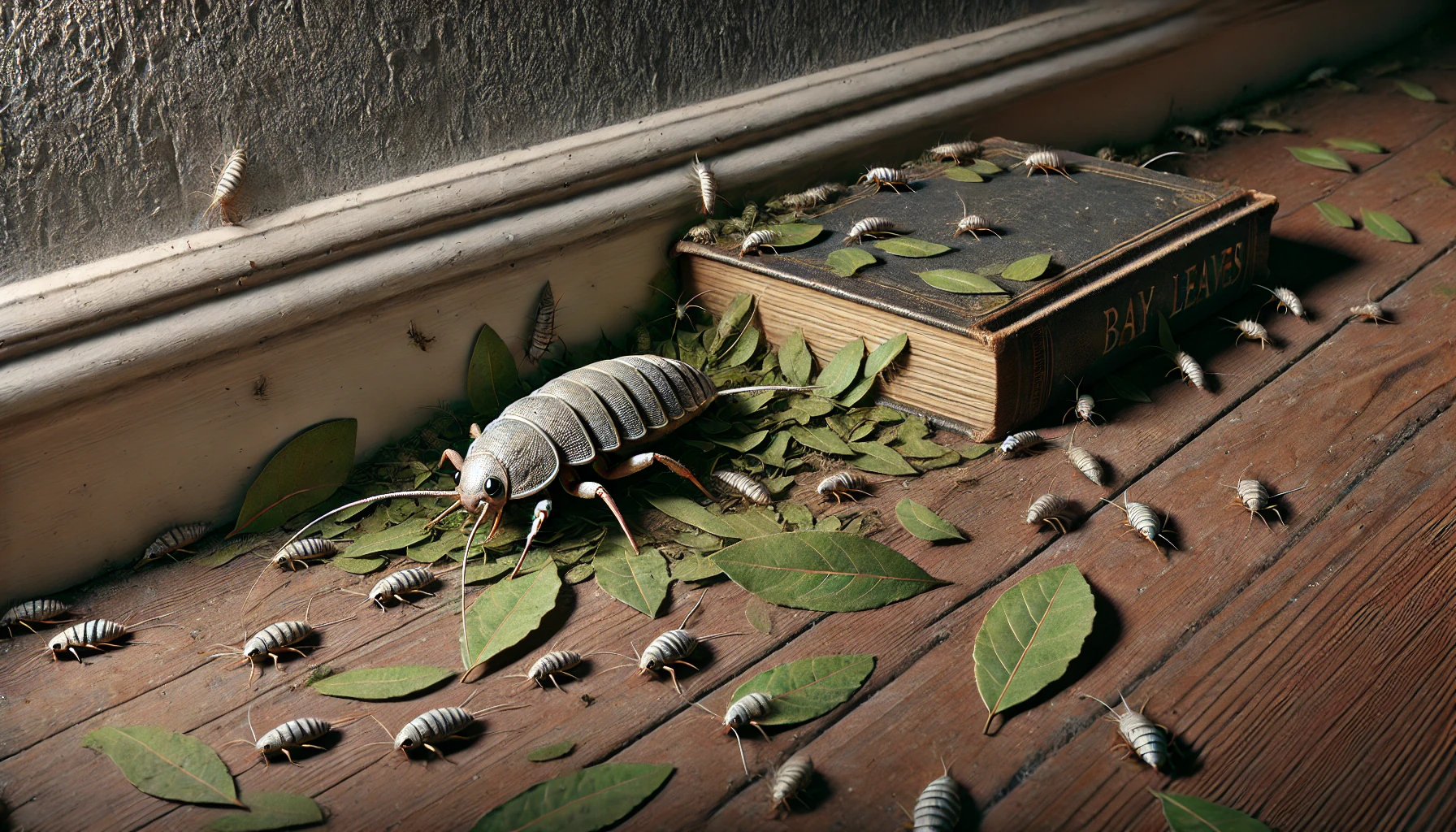
Natural Remedies to Repel Silverfish
- Looking for chemical-free solutions to discourage silverfish? Consider these natural methods:
-
Cedarwood and Lavender: Use essential oils or cedar chips in closets, drawers, and near beds—these scents repel silverfish effectively.
-
Diatomaceous Earth: Apply food-grade diatomaceous earth around baseboards, bed legs, and storage areas; it dehydrates and kills silverfish on contact while being safe for humans and pets.
-
Cinnamon Sticks: Place cinnamon sticks in drawers, closets, or under the bed—its strong scent helps keep silverfish away naturally.
Debunking Myths: Silverfish Facts vs. Fiction
Separating silverfish facts from myths helps homeowners tackle infestations effectively:| Myth | Fact |
|---|---|
| Silverfish bite or sting. | Silverfish cannot bite or sting humans; they’re harmless to your skin. |
| Silverfish spread diseases. | Silverfish do not transmit diseases, though they can trigger allergies. |
| Only dirty homes attract silverfish. | Clean homes can also attract silverfish if humidity and food sources are available. |
| Silverfish infestations are temporary. | Without proper treatment, silverfish infestations often become long-term problems. |

When to Call Professional Pest Control
Sometimes DIY measures aren’t enough. Consider calling pest control professionals if:- You frequently spot multiple silverfish despite implementing preventive steps.
- There’s extensive damage to bedding, clothing, or other valuable household items.
- Infestation persists or worsens despite your efforts.





